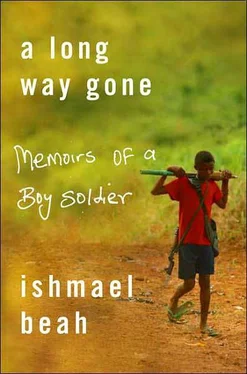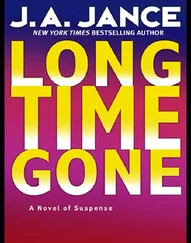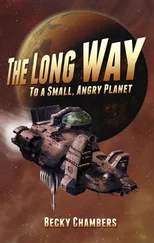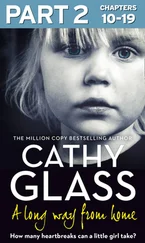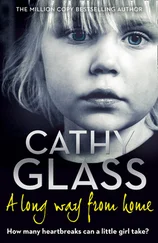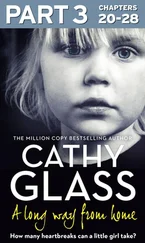“I am going to the dance floor,” Allie announced, screaming so that I could hear him. He disappeared into the crowd. I sat for a while scoping out the place, and slowly began dancing by myself in the corner of the dance floor. Suddenly an extremely dark girl whose smile illuminated the dance floor pulled me and led me to the middle of the floor before I could resist. She started dancing close to me. I looked back at Allie, who was standing at the bar. He gave me a thumbs-up, and I began to move slowly until the rhythm took over. I danced one raggamorphy song with the girl, and then there was a slow jam. She pulled me toward her and I held her hand delicately as we swayed to the music. I could feel her heart beat. She tried to catch my eyes, but I looked away. In the middle of the song, some older boy pulled her away from me. She waved as she was being escorted through the crowd and toward the door.
“You are smooth, man. I saw that.” Allie was now standing next to me. He began walking toward the bar, and I followed him. We leaned against the counter, facing the dance floor. He was still smiling.
“I really didn’t do anything. She just wanted to dance with me and I couldn’t say no,” I said.
“Exactly, you say nothing and the women come to you,” he teased. I didn’t want to talk anymore. A memory of a town we had attacked during a school dance had been triggered. I could hear the terrified cries of teachers and students, could see the blood cover the dance floor. Allie tapped me on the shoulder and brought me back to the present. I smiled at him, but I was deeply sad for the rest of our stay. We danced all night and returned before Uncle woke up.
A few nights later, I returned to the pub alone and saw the same girl. She told me her name was Zainab.
“Sorry about last time,” she said. “My brother wanted to go home and I had to go with him, otherwise my parents would have gotten worried.”
Like me, she was alone this night.
I dated her for three weeks, but then she began to ask too many questions. Where was I from? What was it like growing up upline ? Upline is a Krio word mostly used in Freetown to refer to the backwardness of the inner country, its inhabitants, and their mannerisms. I was unwilling to tell her anything, so she broke it off. That was the story of my relationship with girls in Freetown. They wanted to know about me, and I wasn’t ready to tell them. It was okay. I liked being alone.
Leslie came to see me. He asked how I was doing and what I had been up to. I wanted to tell him that I had had one severe migraine wherein the image of a burning village flashed in my mind, followed by wailings of many voices; that I had felt the back of my neck tighten and my head become heavy, as if a huge rock had been placed on it. Instead, I told him only that everything was fine. Leslie pulled out a pad and began writing something on it. When he was done he turned to me and said, “I have a proposition for you. It is important.”
“Always the bearer of news, aren’t you?” I joked.
“This is important.” He studied the pad he held in his hand and continued. “There is an interview for two children to be sent to the United Nations in New York, in America, to talk about the lives of children in Sierra Leone and what can be done about it. Mr. Kamara, the director of your former rehabilitation center, recommended that you go for the interview. Here is the address, if you are interested.” He tore the paper off and handed it to me. As I was looking at it, he went on: “If you want me to go with you, come by the office. Dress up for the interview, okay?” He searched my face for an answer. I didn’t say anything. Afterward, he left with a smile on his face that said he knew I would show up for the interview.
The day of the interview finally arrived, and I dressed casually for it. I wore sneakers, nice black pants, and a green long-sleeved shirt. I tucked my shirt in as I walked down to Siaka Stevens Street to the address that Leslie had given me. I told no one where I was going. I had wanted to talk to Allie about it, but hesitated, because I knew that if I did, I would have to tell him more than he knew about me, more than my uncle had told him.
It was almost midday, but the tar road was already too hot. I watched a flying plastic bag land on the road and immediately begin to melt. Poda podas went by, their apprentices shouting the names of their destinations to attract customers. A few feet ahead a vehicle had stopped on the side of the street and the driver was pouring water from a jerrican into its overheated engine. “This car drinks more water than a cow,” he grumbled. I was walking slowly, but my undershirt got soaked with sweat.
When I arrived at the address, I stood in front of the tall building and marveled at its height before entering. In the lobby there were about twenty boys, all dressed better than I. Their parents were giving them last-minute points for the interview. I studied the big cement columns in the building. I liked thinking about how people had managed to create and erect such large cement pillars. I was busy examining one pillar when a man tapped me on the shoulder and asked if I was there for the interview. I nodded, and he pointed to the open metal box that all the boys now stood in. I hesitantly walked into the congested box and the boys laughed at me, as I stood there unaware that I had to press the button for the box to start moving. I had never been in a box like this before. Where was it taking us? A boy in a blue shirt squeezed his way past me and pressed the number 5 button. It lit up, and the box closed on us. I looked about me and saw that everyone was calm, so I knew that there was no need to worry. The box began to move up, fast. The other boys remained calm, adjusting their ties and shirts. When the doors opened, I was the last to step out into a large open room with brown leather couches. There was a man sitting at the desk at the far wall and he motioned for me to find a place to sit. The other boys had already seated themselves. I sat away from them and looked about the room. Through the window I could see the tops of other buildings, and I decided to get up and look around to see how high up from the ground we were. As I was making my way to the window, my name was called.
A really light-skinned man (I couldn’t tell if he was Sierra Leonean or not) sat in a big black leather chair. “Please have a seat and I will be with you in a moment,” he said in English, and he shuffled through some papers, picked up a phone, and dialed a number. When the person picked up on the other end, the man just said, “It is a go-ahead,” and hung up.
He turned toward me and eyed me for a bit before he began to question me, speaking very slowly, in English.
“What is your name?” he asked, looking at the list of names on his desk.
“Ishmael,” I said, and he checked my name before I could tell him my last name.
“Why do you think you should go to the UN to present the situation affecting children in this country?” He raised his head from the list and looked at me.
“Well, I am from the part of the country where I have not only suffered because of the war but I have also participated in it and undergone rehabilitation. So I have a better understanding, based on my experience of the situation, than any of these city boys who are here for the interview. What are they going to say when they go over there? They don’t know anything about the war except the news of it.” I looked at the man, who was smiling, and it made me a bit angry.
“What else do you have to say?” he asked.
“Nothing, except that I am wondering why you are smiling.” I sat back in the soft leather chair.
“You can go now,” the man said, still smiling.
Читать дальше
